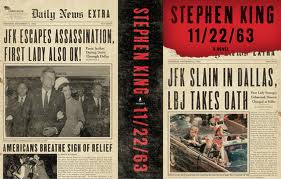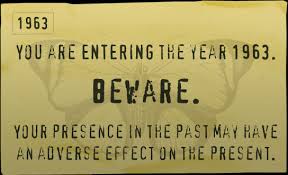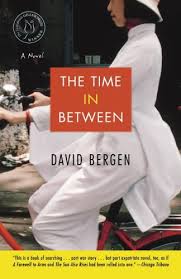Time for confessions. Waaaaay back in 1987 or 1988, I wasn’t reading very much, after years of reading Hardy Boys, Louis L’Amour, and way too many books about baseball. School and girls had taken over my life. (One of those girls is now my wife, though, so it wasn’t all bad.) Anyway, I was home alone one weekend, and I was actually… bored. I hopped in the car and drove to the mall, which was the only place to buy books back then, and I went looking for something to read. I walked out with Stephen King’s It. (I purchased it- I didn’t steal it, just so you know.)
I then proceeded to inhale the novel in about a week, and this set me off on reading again. I plowed through ‘Salem’s Lot, Carrie,  Cujo… I probably read ten King books in a row. Since then, I haven’t had a “dead zone” (hah) in my reading. So in a way, I credit King for bringing me back into a love of fiction. (And to this day, The Stand is one of my favorite books.)
Cujo… I probably read ten King books in a row. Since then, I haven’t had a “dead zone” (hah) in my reading. So in a way, I credit King for bringing me back into a love of fiction. (And to this day, The Stand is one of my favorite books.)
With all that said, I believe that we the readers enter into a contract of sorts with King when we begin one of his sweeping, epic-length novels. We’ll overlook the digressions, dead spots, and sometimes-heavy-description because King is going to take us somewhere new, exciting, and fascinating. A place we (I) would never have thought could have existed. That’s why I read Stephen King, and why I read 11/22/63.
11/22/63 tells the story of Jake Epping, a thirty-something English teacher, who walks through a “rabbit hole” and goes back in time to a particular day in 1958. He can, from there, decide to change history, although history works pretty hard to avoid being changed. When he goes back through the rabbit hole, he returns to 2011, only two minutes later than when he walked through the hole, even if he stayed in the 1950’s for years and years. If he goes back through to the past a second time, everything “resets,” so he can try multiple times if need be (although we find out later that it wasn’t as easy as Jake and his friend Al thought).
A short digression here: if you could go back in time, what would you want to do? What would be important to do? Try to stop Hitler before 1939? Stalin? Stop the Manhattan Project? I’ll admit that every once in a while, I look at my 9th graders and wish, just for a minute, that I could go back and have a re-do on my high school experience, as long as I could still have the maturity and knowledge I have now. (Thank goodness we can’t actually do such a thing.)
Jake (and Al) believes that saving JFK could have the biggest positive outcome. Think about it: maybe the Vietnam war wouldn’t have escalated like it did. Maybe the Civil Rights Movement would move ahead faster. Robert Kennedy and Martin Luther King might not have been assassinated. The Butterfly Effect might impact many millions of people in a positive way.
 So King takes us back in time, when the United States was a more trusting, innocent place. We follow Jake as he stalks Lee Harvey Oswald, trying to determine if he acted alone or if there was a wide-ranging conspiracy. Jake met a woman, fell in love, taught English to 1950’s teenagers, went to the drive-in for movies, and immersed himself in the times.
So King takes us back in time, when the United States was a more trusting, innocent place. We follow Jake as he stalks Lee Harvey Oswald, trying to determine if he acted alone or if there was a wide-ranging conspiracy. Jake met a woman, fell in love, taught English to 1950’s teenagers, went to the drive-in for movies, and immersed himself in the times.
November 22, 1963 finally arrived, and Jake changed history… but it didn’t have the outcome he was expecting.
It took almost 800 pages to get there, so the contract was in effect. King meanders, digresses, and describes until I was ready to scream, but he took me somewhere interesting- somewhere I would never have expected. I also loved how King subtly alludes to his own novels, like It, Rita Hayworth and the Shawshank Redemption, and Christine. This one had only a touch or two of the horror that King is obviously famous for, so this would be a good place to start for those who are looking for a place to begin reading King’s novels.
Stats
Published: 2011
Category: Fiction
Pages: 849
Rating on Goodreads: 4.23
Why I Read This Book: I sometimes enjoy large, sweeping novels!
How I rated this book: 3/5 stars

